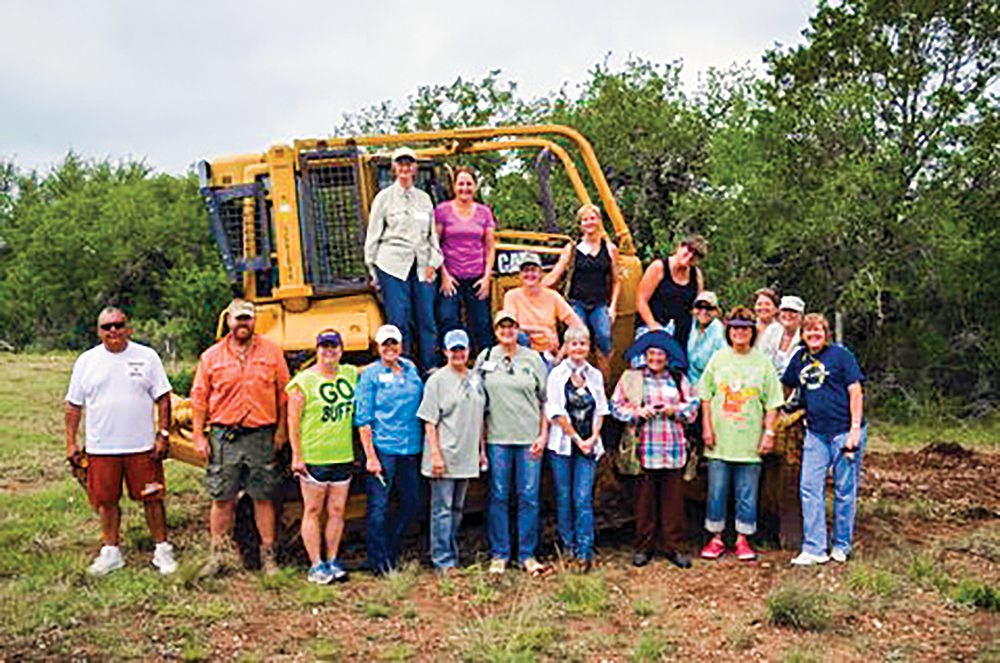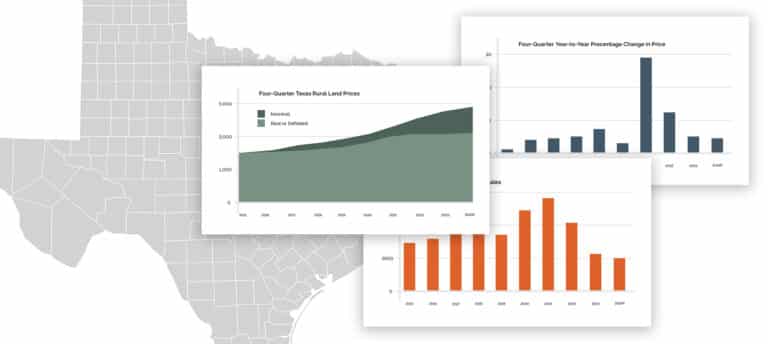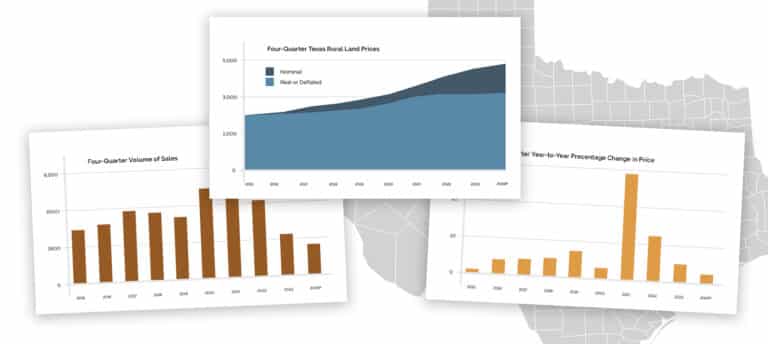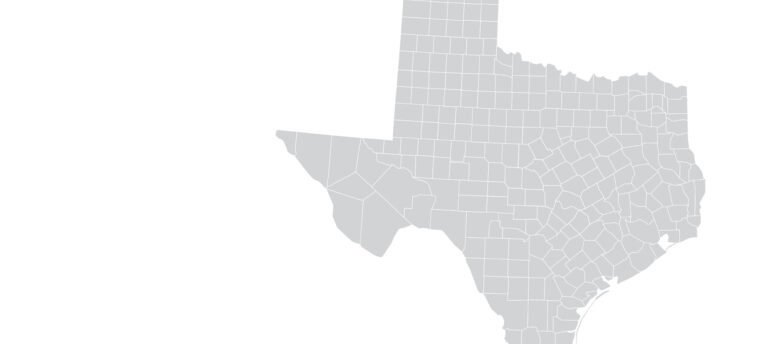
They come to Women of the Land (WOTL) from different places bringing different backgrounds, different experiences, different expectations and different goals. And, yet when the conversation begins to flow, the women find themselves on firm common ground.
“The big thing about Women of the Land is the fellowship with other women who share the same passions that I do,” said Lynita Kelldorf, who is a nurse from Houston and owns 47 acres in Walker County near Huntsville. “It’s not about our age, our jobs or our social status. It’s about the land. We realize that land ownership is a gift and we have the responsibility to be good stewards.”
Kelldorf inherited her land from her mother who had inherited it from her mother. The land has been in the family since her great great grandfather’s wagon got stuck in Walker County in early 1900, preventing him from reaching Galveston about the same time as the deadly hurricane. News of the devastation reached him, prompting him to put down roots in the same soil that mired his wagon. While Kelldorf’s mother owned the land, she had never managed it. In fact, she would not allow any trees to be cut, which in the Piney Woods means that land can become a tangled thicket.
WOTL started in 2005. Since then, 223 women have attended the eight regional and two advanced programs. Some participants have enjoyed it so much that they’ve attended several programs.
The next Advanced WOTL will be held in the spring of 2015 and the Regional WOTL is slated for fall 2015. Exact dates, times and locations will be announced. Generally, there is space for 25-35 attendees.
Registration, which includes food and lodging, for the weekend ranges from $150-$200. The host ranches are equipped with comfortable guest accommodations, so participants are not camping out or “roughing it.”
A divorce at 50, prompted Kelldorf to question how she wanted to approach the next phase of her life. She found the answer in her land.
“Bringing the land back to life and getting it in good shape, so my children could enjoy it and someday care for it, seemed to be a good way to direct my nurturing instinct,” Kelldorf, whose children are grown, said.
In the beginning, there were more questions than answers as Kelldorf and her significant other, Jack Casey, began the task of managing the land. As a member of the Houston Livestock Show and Rodeo’s Ranch and Wildlife Committee, Kelldorf attended the group’s annual outdoor expo. There she discovered WOTL and decided to attend.
Meanwhile, Kay Kelley, a housewife in Houston who owns land near Carrizo Springs with her husband, Phil, also discovered WOTL. Over time, they had acquired 1,200 acres in the heart of Texas’ Golden Triangle famous for high-quality white-tailed deer. They used the ranch as a recreational hunting property for their family, which included two young sons. Kay, who was raised in Dallas, was a self-described city girl and, although her husband was raised in a small Panhandle town and was an avid hunter, he didn’t have any land management experience either. The couple was allowing their hunting outfitter to manage their wildlife and their land. To their inexperienced eyes, the habitat and the wildlife looked just fine.
Kelley just happened to run across an ad for WOTL in the Carrizo Springs Javelin. She decided to go, thinking it was a field day for local women ranchers. It seemed like a good way to meet the neighbors.
Approximately 200 miles north in Fayette County, between Flatonia and Smithville, Jackie Harker, an energy industry professional, had already attended her first WOTL. She and her husband, Steven, who live and work in west Houston had searched for years before finding the perfect piece of property. The couple bought 68 acres, in the gently rolling hills between Flatonia and Smithville, with recreation and eventual retirement in mind. Neither of them had ever managed land before.
When they bought the land, it had been used primarily for cattle grazing. To maintain an agricultural valuation, the previous owners kept a herd grazing, even when drought made vegetation scarce. The land had its work clothes on when the Harkers purchased it.
As a member of the Texas Wildlife Association, Harker knew Tamara Trail and Jenny Sanders, who at the time were on the organization’s staff and were heading up various education efforts. The women’s paths had crossed at a session of Becoming An Outdoorswoman, a program sponsored by the Texas Parks and Wildlife Department that focuses on basic skills for outdoor recreational pursuits like camping, angling and shotgunning.
“It was just a natural progression from one program to the other,” Harker said. She and a friend went to WOTL, telling their husbands they were taking a “girls weekend to check it out” because they didn’t know what to expect.
Kelldorf and Kelley arrived at La Bandera Ranch in Carrizo Springs as strangers and they left as friends bound by newfound knowledge and a passion for learning more. Harker joined forces with them at a later WOTL program.
Kelldorf said, “WOTL gave me a new knowledge base and opened up a host of different avenues for gathering information. When you walk into the coffee room at the hospital, people aren’t sitting around talking about the government agencies that can help you manage your land.”
Harker added, “When something is brand new, especially something multi-faceted like land management, sometimes you need background information to even know what questions to ask. After WOTL, I know the vocabulary and I know what to ask, making the whole decision-making process for our property a lot less overwhelming.”
Kelley returned to the ranch with so many ideas that she said her husband Phil thought “I’d lost my mind.” After completing a white-tailed deer necropsy, she considered wildlife and their habitat from a whole new perspective. She realized that the outfitter, in anticipation of selling hunts, was keeping too many animals on their land. The Kelleys decided to continue their education and manage their resources themselves.
With the newfound understanding of the alphabet agencies like Texas Parks and Wildlife Department (TPWD), the Natural Resources Conservation Service (NRCS), Texas Department of Agriculture (TDA) and Texas A&M University AgriLife Extension (TAEX), the Kelleys were able to obtain professional technical guidance and write a long-term management plan. In addition, they identified cost-share programs that allowed them to move toward their management goals, which included removing some of the mesquite and prickly pear to encourage native grasses and forbs to re-establish.
“As part of our management plan, we identified 350 acres where mesquite needed to be thinned and our resource specialist from NRCS helped us apply for a cost-share program that covered 70 percent of the work’s cost,” she said. The couple sprayed the mesquites to defoliate them and then allowed them to die and decay. As a follow-up, they sprayed the prickly pear. Both practices exposed more ground to sunlight and rainfall.
“The response from the land has amazed us,” Kelley said. “We were driving around after a recent rain, looking at native grass coming back where there was previously just bare soil. The grass provides more thermal cover and helps rainwater absorb into the ground. I wouldn’t have known or appreciated that before.”
The women learned so much at their first WOTL weekends that the trio followed up by attending other WOTL weekends around the state. Today, they also serve on the Women of the Land Advisory Committee.
Kelley said, “We went to so many basic courses that the program director jokingly asked us if we were slow learners. There’s so much good information — and it’s so much fun – that once is not enough.”
While the basic topics such as wildlife’s habitat requirements and Aldo Leopold’s management tools remain the same, the speakers change and settings change, so each program is different. By rotating locations, attendees gain perspective on ecosystem differences and management challenges in different parts of the state, but take home knowledge that can be applied directly to their individual situations.
Kelldorf said, “WOTL gives you the tools to make your particular corner of the world better, no matter your budget, no matter its location or size.”
Today, there is a second phase program called Advanced WOTL. It, too, focuses on land management and stewardship, but the tools are bigger. The participants have a chance to drive bulldozers, build water guzzlers, and use chainsaws.
Harker, who carries the knowledge she gains back to her husband, said, “It’s amazing what a bunch of women can do when they want to. It’s empowering to know that other women have done it and that we women don’t have to wait on someone else, we can be the instigators of conservation.”
While the program is built on a shared passion for the land, the importance of the stewardship sisterhood can’t be denied.
Kelldorf said, “It’s not intimidating to ask a question at WOTL because women naturally lean toward one another for support. We open up quickly, especially when you have the common ground of land stewardship. If you think about it, sharing land management knowledge isn’t that much different than sharing recipes at a potluck dinner. If you know how to make something really special, you want your friends to know how to do it, too.”
At Women of the Land, everyone is welcome. It doesn’t matter whether you have a one-acre backyard or a 100,000-acre ranch. In an effort to reach more people with conservation that matters, Kelley, Kelldorf and Harker are hosting a one-day rainwater harvesting workshop on behalf of WOTL.
“Before April Showers” is scheduled for Saturday, February 7 at the Blinn College Rankin Agricultural Complex (1409 Mill Creek Road) in Brenham, Texas. Registration will begin at 8:00 a.m. or participants can preregister through the Texas Wildlife Association website (www.texas-wildlife.org).
Speakers include Todd Locco, certified rainwater collection consultant, and Jack Casey, professional landscaper and owner of Cactus Jack Designs.
While the workshop is coordinated through WOTL, men are welcome to attend.
For more information about Women of the Land, call Clint Faas at the Texas Wildlife Association, at (979) 541-9803 or email him at cfaas@texas-wildlife.org


